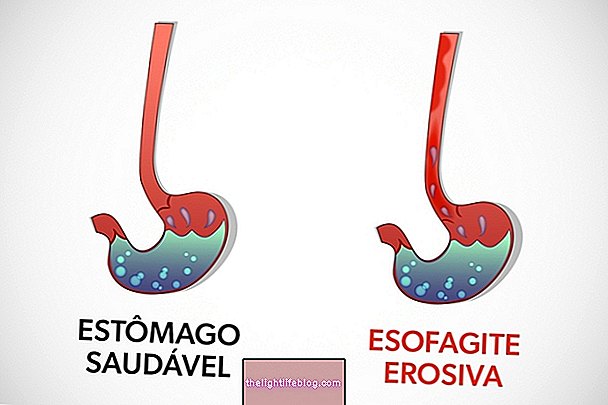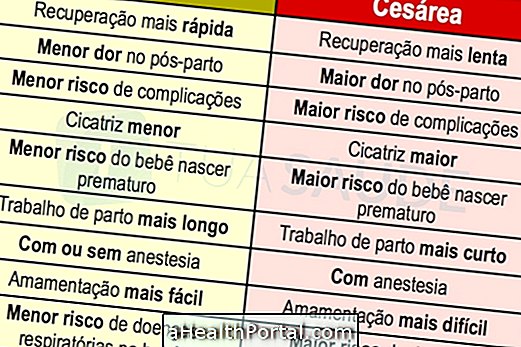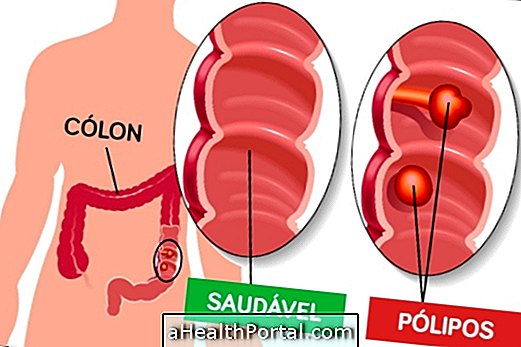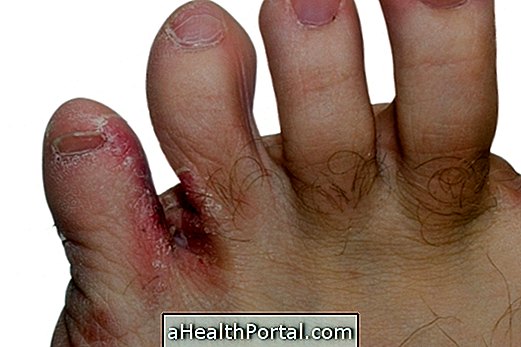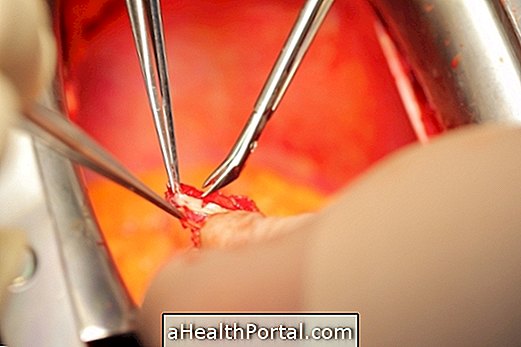Gastroparesis, also called gastric emptying delay syndrome, is a disease that changes the movements of the stomach that take food into the intestine, slowing or stopping movements due to a problem that affects the nerves that control the activity of the stomach, resulting in the appearance of some symptoms such as nausea, vomiting, constant full stomach feeling, gas accumulation and abdominal discomfort.
The exact cause of this disease is unknown, but it is more frequent in people suffering from type 1 and type 2 diabetes, giving rise to diabetic gastroparesis. In addition, some antidepressants or medicines for high blood pressure, such as calcium channel blockers, can cause gastroparesis.
The treatment of gastroparesis is done with medicines indicated by the gastroenterologist, in addition to adequate food, which must be guided by a nutritionist, to avoid possible complications that may affect the person's quality of life.

Main symptoms
The main symptoms of gastroparesis appear as the stomach is unable to perform the movements to digest and send food to the intestine, the main ones being:
- Nausea;
- Vomiting;
- Bad breath;
- Abdominal pain;
- Feeling of being full even after eating a small meal;
- Feeling of a heavy stomach, even if the last meal was eaten many hours ago;
- Excessive gas production.
In addition, people with severe gastroparesis may also experience loss of weight or appetite and signs of dehydration, such as symptoms of weakness, dizziness and dry mouth.
How to confirm the diagnosis
The diagnosis of gastroparesis is made by the gastroenterologist based on symptoms and medical history, taking into account the person's age, as well as the presence of diabetes mellitus or previous surgeries in the abdominal region. In addition, tests may be ordered to determine blood sugar and hormone levels, such as thyroxine and triiodothyronine, for example.
Other tests that the doctor may order are measurement of gastric emptying, scintigraphy, endoscopy, ultrasound or radiography with contrast, to assess the appearance of the stomach or whether the person has undigested food in the stomach after fasting for a few hours and how long it takes for the food to pass into the intestine.
These tests allow the doctor to exclude other diseases, such as gastric ulcer or mechanical obstruction, irritable bowel syndrome, indigestion or gastroesophageal reflux, for example.

Possible causes
Most cases of gastroparesis have an unknown cause and are therefore known as idiopathic gastroparesis. However, it can be associated with diabetes mellitus, as high levels of glucose in the blood can inhibit gastric emptying due to injuries that cause nerves that control stomach movements, causing diabetic gastroparesis. Another possible cause of gastroparesis is possible damage to the nerves that control the stomach in people who have undergone some type of gastric surgery.
In addition, the use of some medications, such as antidepressants, opioids or calcium channel blockers, for example, may also be related to the development of gastroparesis.
How the treatment is done
The treatment of gastroparesis must be done by a gastroenterologist who can indicate the use of medications that increase intestinal transit, such as erythromycin, domperidone or cisapride, or antiemetics such as metoclopramide, to control nausea and vomiting. In addition, botulinum toxin injections and gastric electrical stimulation sessions may also be indicated.
The doctor can also recommend that the person reduce the size of the food portions and have a light diet, low in fats, rich in soluble fibers and that is mostly liquid, to ensure the adequate supply of nutrients, maintain the hydration of the food. body and facilitate gastric emptying. Likewise, it is also important to control blood sugar levels, especially in diabetic people. Learn how to control diabetes.
In the most severe cases of gastroparesis, in which the person is unable to feed orally, it may be necessary to do tube feeding to provide all the nutrients that the person needs and to avoid complications such as dehydration or malnutrition. Find out how tube feeding is done and the care that should be taken.
In addition, the doctor may also recommend surgery in order to facilitate gastric emptying, and may be indicated in cases where there is no improvement with other treatment options.
Possible complications
Complications of gastroparesis can arise when treatment is not performed or when the doctor's instructions are not followed, which can result in malnutrition and dehydration due to constant vomiting, malabsorption of drugs, drastic variations in blood sugar levels or accumulation of fibers not digested in the stomach, in addition to the worsening quality of life.
Was this information helpful?
Yes No
Your opinion is important! Write here how we can improve our text:
Any questions? Click here to be answered.
Email in which you want to receive a reply:
Check the confirmation email we sent you.
Your name:
Reason for visit:
--- Choose your reason --- DiseaseLive betterHelp another personGain knowledge
Are you a health professional?
NoMedicalPharmaceuticalsNurseNutritionistBiomedicalPhysiotherapistBeauticianOther
Bibliography
- TRONCON, L. E. of A. Gastroparesis: review of aspects related to the concept, etiopathogenesis and clinical management. Magazine of the Brazilian Medical Association. 43. 3; 228-236, 1997
- PARKMAN, Henry; HASLER, William; FISHER, Robert. Technical review on diagnosis and treatment of gastroparesis. American Association of Gastroenterology. LXX. III; 325-360, 2005
- BOSCA, Marta; MARTI, Lidia; MINÍGUEZ, Miguel. Diagnostic and therapeutic approach to the patient with gastroparesis. Vol.XXX. VI.ed ;. Elsevier, 2007. 351-359.
- CAMILLERI, Michael; et al. Clinical Guideline: Management of Gastroparesis. The American Journal of Gastroenterology. 108. 1; 18-37, 2013
- MASAOKA, Tatsuhiro; TACK, Jan. Gastroparesis: Current Concepts and Management. Gut and Liver. Vol.III. III.ed; 166-173, 2009. Gastroparesis: Current Concepts and Management. Gut and Liver. 3. 3; 166-173, 2009
- CESARINI, P.R .; FERREIRA, S. R. G. Diabetic gastroparesis. Rev Ass Med Brasil. 43. 2; 163-168, 1997




